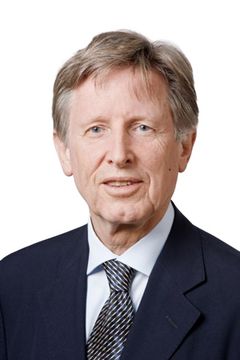TUM-IAS Director's Message
The first year in my responsibility as the new TUM-IAS Director has presented our Institute for Advanced Study, our university, and the entire globe with enormous challenges in the pandemic that will certainly be judged later in retrospect as a turning point in time.

Image: Astrid Eckert
Like all institutions of higher education, TUM and the Institute for Advanced Study had to convert their operations to online formats. Our international Fellows could not join us, or only under very difficult conditions. We had to cancel workshops, conferences, lunches, and annual meetings or move them to digital formats. Yes, all of this impacted and complicated our collaborative work. But the innovative spirit of our Fellows and hosts overcame this too, and the research work continued.
Our TUM-IAS team and I look forward to seeing you all again in the coming weeks and months, and to renewing our exchanges in person.
But much more than that. In response to our 2020 Call for Fellowships, we have invited 14 new Fellows from more than 10 countries to the TUM-IAS, with topics ranging from catalysis research to digital business and platform capitalism. At the same time, the strategic development of TUM is picking up immensely, and this is also reflected in the plans, activities, and measures of the TUM-IAS.
Expansion of the social sciences and humanities as well as increased interdisciplinary and transdisciplinary research are strategic focal points of TUM, and data sciences will encompass almost all TUM disciplines like a web.
Accordingly, our TUM-IAS has expanded its radius to include new topics. Topics in social and political science became visible focal points with new Fellows. Sustainability is and will continue to be a guiding theme across all disciplines, thus strategically supporting TUM's course. What is needed with sustainability is overarching thinking in terms of effects, not individual measures, and I expect the inclusion of economics in a way that has not been seen before to provide a further boost.
Hans Fischer Senior Fellowship of the Georg Nemetschek Institute
Research areas such as data, artificial intelligence, and robotics in the built environment will become an internationally visible complex with high attractiveness via a new Fellowship.
New Mößbauer Professorships
The Rudolf Mößbauer Tenure Track Assistant Professorships, which are equally affiliated with the TUM-IAS as Fellowships, were not advertised completely openly, as in an open-field call, but according to focus areas that also address the thematic expansion of TUM. Five new professors are appointed in these fields:
- Social and Educational Sciences for Technology Transformations
- Organoids and Tissue Engineering
- Prevention and Health Care
Innovation Networks
Innovation Networks are a new instrument of our institutional TUM strategy. With them, we want to identify and promote topics across Schools and Departments that can only be successfully addressed through interdisciplinary research approaches. The Innovation Networks will later give rise to large-scale priority programs or comprehensive funding projects that will strategically complement TUM in the long term. The TUM-IAS, an echange place of knowledge with its experienced and proven evaluation system at the top international level, is exactly the right place to conduct selection and competition on the Innovation Networks.
“Food for thought” – brainstorming for the post-pandemic world
In light of the Covid-19 pandemic this anthology, the most elaborate work of the TUM Senior Excellence Faculty and the TUM-IAS to date, stands for the need to initiate radical change in politics, business, and society. More than 90 authors, including many from the TUM-IAS, produced this anthology in just six weeks. The German version was published in July 2020; the English version has just arrived. In 70 transdisciplinary contributions on sustainability, politics and society, basic research, technology and IT, living spaces (urban, rural, mobility), economics, health and medicine, education and the world of work, and with a special emphasis on Africa, they take up the “change” idea and describe the need for action as well as possible solutions. Topics will always refer to TUM-IAS for our programs and conferences.
The German Research Foundation has also called on German federal and state governments to strengthen knowledge-driven research in the aftermath of the Covid-19 pandemic. Research generates knowledge repositories that enable evidence-based solutions to be found quickly in the event of short-term and unforeseen research needs. A point of view that we at TUM-IAS can only but support.
Immediately before our annual report went to press, the German Science Council, Germany's highest-ranking advisory body, took a close look at the various Institutes for Advanced Study in Germany and affirmed their positive impact on the German science system as a whole. It recommends that German IAS make greater efforts to adopt an international perspective in which, for example, science from the global South can be strengthened. The TUM-IAS has long embraced this perspective and sees itself strengthened in its orientation. We will continue on this course, and in addition further intensify our links with IAS in Eastern Europe.
As I write this down, in early May, news reaches me from NATURE that to date 1.2 million coronavirus genome sequences from 172 countries and regions have been shared in the Global Initiative on Sharing Avian Influenza Data. Sequence data have been critical to scientists studying the origins of SARS-CoV-2, the epidemiology of Covid-19 outbreaks, and the movement of viral variants across the planet. What better demonstrates of the spirit and success of international collaboration, which we are part of?